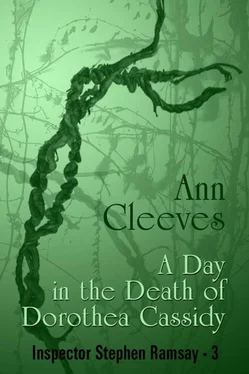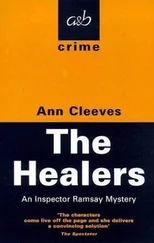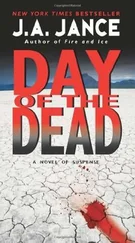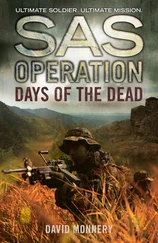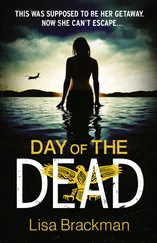Ann Cleeves - A Day in the Death of Dorothea Cassidy
Здесь есть возможность читать онлайн «Ann Cleeves - A Day in the Death of Dorothea Cassidy» весь текст электронной книги совершенно бесплатно (целиком полную версию без сокращений). В некоторых случаях можно слушать аудио, скачать через торрент в формате fb2 и присутствует краткое содержание. Жанр: Детектив, на английском языке. Описание произведения, (предисловие) а так же отзывы посетителей доступны на портале библиотеки ЛибКат.
- Название:A Day in the Death of Dorothea Cassidy
- Автор:
- Жанр:
- Год:неизвестен
- ISBN:нет данных
- Рейтинг книги:5 / 5. Голосов: 1
-
Избранное:Добавить в избранное
- Отзывы:
-
Ваша оценка:
- 100
- 1
- 2
- 3
- 4
- 5
A Day in the Death of Dorothea Cassidy: краткое содержание, описание и аннотация
Предлагаем к чтению аннотацию, описание, краткое содержание или предисловие (зависит от того, что написал сам автор книги «A Day in the Death of Dorothea Cassidy»). Если вы не нашли необходимую информацию о книге — напишите в комментариях, мы постараемся отыскать её.
A Day in the Death of Dorothea Cassidy — читать онлайн бесплатно полную книгу (весь текст) целиком
Ниже представлен текст книги, разбитый по страницам. Система сохранения места последней прочитанной страницы, позволяет с удобством читать онлайн бесплатно книгу «A Day in the Death of Dorothea Cassidy», без необходимости каждый раз заново искать на чём Вы остановились. Поставьте закладку, и сможете в любой момент перейти на страницу, на которой закончили чтение.
Интервал:
Закладка:
There was a pause and Ramsay got to his feet awkwardly.
‘Is there a friend’s house, where you and your father could spend the day?’ he asked. ‘ The press will soon come to hear of your stepmother’s murder and you’ll be rather accessible at the vicarage. I think your father deserves one day’s peace.’
‘Yes,’ Patrick Cassidy said. ‘I’m sure there is…’
He was interrupted by Edward Cassidy who appeared at the kitchen door. Patrick crossed the grass and stood by his father in the shadow of the house but they did not touch. Ramsay thought that the priest had been crying and wondered if his faith could be any comfort at a time like this. He hoped so, although it was beyond his understanding.
‘I’ve suggested that you stay with a friend for the day,’ Ramsay said, ‘to avoid the press.’
‘I don’t know…’ Cassidy seemed older, incapable of making decisions.
‘I’ll take you,’ Patrick said. ‘We’ll go to the Walkers’ in your car.’ He turned to Ramsay. ‘Major Walker is the church warden,’ he said. ‘ His wife is in the parish hall. Could you see if it’s all right?’
Ramsay nodded but before he could leave the priest touched his arm.
‘You will keep in touch? Let me know when I can see her?’
Ramsay nodded again. ‘Would you mind if I had a look around the house while you’re out?’ he said. ‘There may be something which provides a clue to where your wife was yesterday.’
He thought for a moment that the man would object but he seemed too weak to resist.
‘No,’ he said at last. ‘I don’t mind.’
Then, for the first time, Patrick reached out and put his arm around his father’s shoulder and helped him through the house to the car, where they waited for Ramsay to return.
It was ten o’clock and the doors of the parish hall had just been opened to allow the public into the coffee morning. There was a scrum around the cake stall and a more orderly queue at the counter where a flushed woman hovered anxiously over a tea urn. It was clear to Ramsay that the news of Dorothea’s death had reached the Mothers’ Union. Among the helpers there was a troubled silence. Some had thought they should cancel the whole event but no one was willing to take the decision. He found Dolly Walker in the kitchen. She had been weeping and the mascara ran in streams down her face.
Of course the Cassidys must spend the day with them, she said. They could stay as long as they liked.
Ramsay took details of the address and phone number and watched her scurry away to prepare the house for them, glad of the excuse to grieve in private, secretly gratified that she had been selected for the honour.
At the vicarage the men still sat in the car in silence. Ramsay stood at the front door and watched them drive away. With the departure of the Cassidys the house seemed very quiet. He walked round and entered through the back door, through a dark scullery and a large and comfortable kitchen. He had no real idea what he hoped to find – perhaps some letters belonging to Dorothea which would give a clue to how she spent her Thursdays. Perhaps a more vivid impression of how the three of them had got on together in this large and daunting house. He wondered suddenly why Dorothea had decided to marry Cassidy and take the whole thing on after one brief meeting on a windy Cornish beach. Was there something romantic in her nature which made the impulsive decision appeal to her? Or was it like everything else she did, a matter of faith?
He went first to the small room where Cassidy had showed him the photographs. The couple must both have used it as a study. Ramsay thought Cassidy would see his parishioners here amid the chaos. It would prove to them how busy and committed he was.
Next he went to the desk and sorted the papers there into two piles – those belonging to Dorothea and those to Edward Cassidy. On Edward Cassidy’s pile there were letters about the routine running of the church – quotations for a new heating system, a query about St Mary’s contribution to the Church Urban Fund. There were also several articles, all unfinished, meant apparently for the religious press. On a small bookcase was a row of Cassidy’s books. The photograph on the back jacket was of a much younger man and Ramsay found that the most recent had been published fifteen years before. Cassidy, it seemed, had a major writer’s block.
On Dorothea’s pile there were letters from friends – long, intimate letters in a variety of handwriting styles asking for advice, sharing problems. Then there were photostated circulars asking the couple to pray for a number of different projects including a missionary school in Tanzania, the Amazon rainforests and a new minibus for a church in Birmingham. What a responsibility! Ramsay thought. Did they expect her to solve the world’s problems single-handed? On the top of the desk was a large brown envelope which had a British post-mark but which contained a batch of drawings and carefully printed notes from the children in the orphanage which she had supervised when she had been working overseas. Ramsay presumed that it had been brought back by a member of staff on leave, then posted. It had been sent on the nineteenth of June, so Dorothea must have received it the day before, and opened it before disappearing to the town. Ramsay spread the brightly coloured crayoned pictures over the desk. One said in large and wobbly letters: ‘Come back soon.’
The other downstairs rooms were large and unfriendly. They smelled rather damp although the spring had been warm and sunny and Ramsay thought for the first time that the family could not be well off. The kitchen and study would be cheaper to heat in winter. There was a dining room with an ugly table and six chairs and a living room containing almost a dozen shabby armchairs set around the walls, which could only have been used for parish meetings. Ramsay felt that they had nothing to do with Dorothea, and after a brief search he shut the door.
Upstairs the first room he came to was the Cassidys’ and here the sense of Dorothea was everywhere – in the brightly coloured rug which covered the large, low bed, in the African wall hangings and the wood carvings standing on the mantelpiece. Her clothes were still thrown over the chair by the window – there was a cream calico skirt and blouse – and on the dressing table there was a mess of her make-up, perfume, a pile of cheap bangles and brightly enamelled earrings. On the floor by the bed were the books she had been reading – a magazine called Third World Review, a David Watson and an old Penguin detective story with cream and green covers.
The room was at the back of the house and from the window there was a view of the garden – on the lawn the deck chair still stood where Patrick Cassidy had left it – then on to the river and Prior’s Park on the opposite bank. Ramsay could see quite clearly the blue and white tape his colleagues were using to mark the area they were searching. If it had not been for a row of screens, he would have been able to see the body.
After the profusion of colour in the main bedroom Patrick’s seemed bare. There were none of the posters of rock stars which Ramsay associated with teenage rooms and the record collection was small and old, as if he had tried music once, when he was younger, but dismissed it as not for him. Why then, Ramsay wondered briefly, had he been so interested in the folk music the night before?
There were lots of books neatly set in rows on a home-made bookcase of breeze blocks and chipboard. Patrick must be reading English Literature at university, Ramsay decided. The shelves were filled with titles the inspector had heard of but never read. A small square table which acted as a desk was set against one wall and on it was a copy of Gerard Manley Hopkins poetry and a translation of Aeschyllus. There was also a plastic-covered ring file which Ramsay opened idly, expecting to find notes on the books the boy had been reading. Instead there were about a dozen loose-leaf pages, each containing an example of Patrick Cassidy’s own verse. The poems were obscure and intense and Ramsay guessed that they were probably bad. But as he read one after another it became clear that Patrick Cassidy was passionately and desperately in love. The object of the infatuation was, Ramsay supposed, the blonde girl in the photo downstairs. The poems were strangely joyless and despairing, and he wondered what sort of masochism tied the boy to a woman who gave him so little pleasure.
Читать дальшеИнтервал:
Закладка:
Похожие книги на «A Day in the Death of Dorothea Cassidy»
Представляем Вашему вниманию похожие книги на «A Day in the Death of Dorothea Cassidy» списком для выбора. Мы отобрали схожую по названию и смыслу литературу в надежде предоставить читателям больше вариантов отыскать новые, интересные, ещё непрочитанные произведения.
Обсуждение, отзывы о книге «A Day in the Death of Dorothea Cassidy» и просто собственные мнения читателей. Оставьте ваши комментарии, напишите, что Вы думаете о произведении, его смысле или главных героях. Укажите что конкретно понравилось, а что нет, и почему Вы так считаете.
